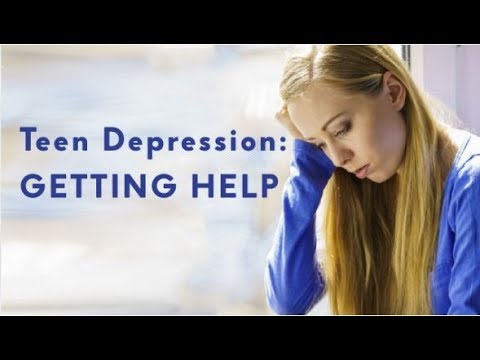What are the warning signs of teen depression? How can you help your teen with depression?
Teen depression is a serious mental health problem that causes a persistent feeling of sadness and loss of interest in activities. It affects how your teenager thinks, feels and behaves, and it can cause emotional, functional and physical problems.
Although depression can occur at any time in life, symptoms may be different between teens and adults. Knowing the teen depression warning signs can help you get your teen the appropriate care they need.

Teen depression signs and symptoms include a change from the teenager’s previous attitude and behavior that can cause significant distress and problems at school or home, in social activities, or in other areas of life.
Depression symptoms can vary in severity, but changes in your teen’s emotions and behavior may include the examples below.
Be alert for emotional changes, such as:
- Feelings of sadness, which can include crying spells for no apparent reason
- Frustration or feelings of anger or rage
- Feeling hopeless or empty
- Irritable or annoyed mood
- Loss of interest or pleasure in usual activities
- Family conflict, loss of friends
- Low self-esteem
- Feelings of worthlessness or guilt
- Fixation on past failures or exaggerated self-blame or self-criticism
- Extreme sensitivity to rejection or failure, and the need for excessive reassurance
- Trouble concentrating, making decisions and remembering things
- Ongoing sense that life and the future are grim and bleak
- Frequent thoughts of death, dying or suicide
Watch for changes in behavior, such as:
- Tiredness and loss of energy
- Insomnia or sleeping too much
- Changes in appetite — decreased appetite and weight loss, or increased cravings for food and weight gain
- Use of alcohol or drugs, vaping (self-medicating)
- Agitation or restlessness
- Slowed thinking, speaking or body movements
- Frequent complaints of unexplained body aches and headaches, which may include frequent visits to the school nurse
- Social isolation, anxiety
- Poor school performance or frequent absences from school (school avoidance)
- Less attention to personal hygiene or appearance
- Angry outbursts, disruptive or risky behavior, or other acting-out behaviors
- Self-harm — for example, cutting, burning, or excessive piercing or tattooing
- Suicide ideation
It can be difficult to tell the difference between ups and downs that are just part of being a teenager and teen depression. Talk with your teen. Try to determine whether he or she seems capable of managing challenging feelings, or if life seems overwhelming.
Local counseling is always a good place to start to get help. If your teen refusing to attend, or it doesn’t seem to help, a possible outpatient treatment center might be helpful. Short-term hospital stay for an evaluation might give you some answers.
If all of this fails, therapeutic boarding schools can be beneficial in treating teenage depression through behavioral therapy. Learn more about why behavior modification programs can help troubled teens.
Also read:
5 Benefits of Boarding Schools for Troubled Teens
Help for Struggling Young Adults
###
Contact us today for a free consultation – learn more about therapeutic boarding schools that specialize with teen depression.























